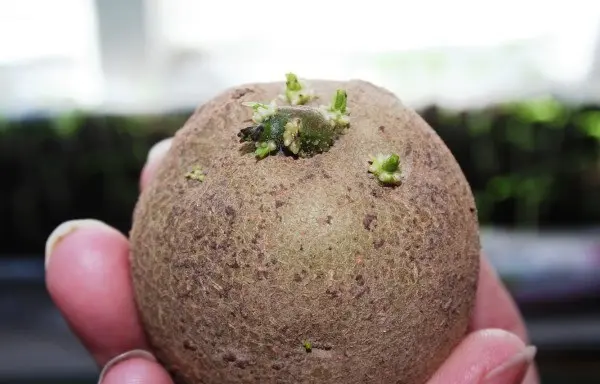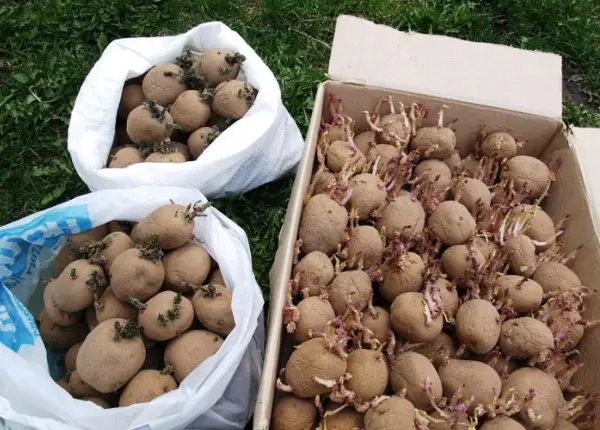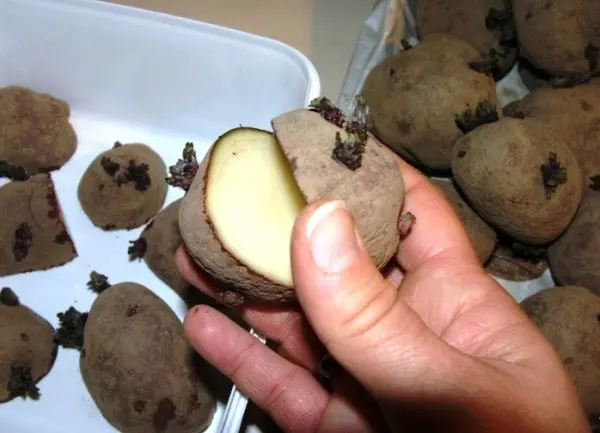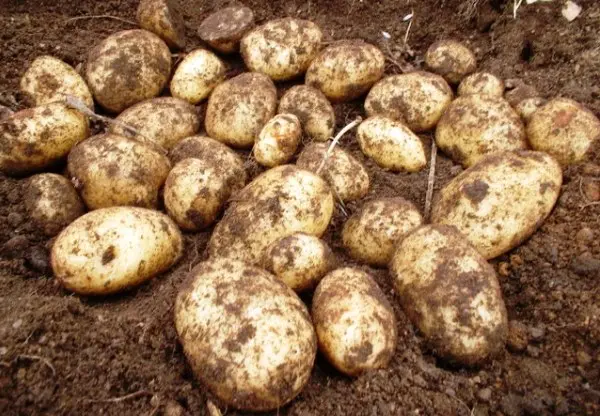Many factors influence the yield of potatoes: soil preparation, fertilizers, care, as well as the variety and quality of the seed. Experienced gardeners know the secret to getting tasty early young potatoes – vernalization of potatoes. This procedure accelerates the emergence of plants and, accordingly, contributes to an earlier harvest. It has been proven that tubers grow 15-20 days faster when compared to planting non-vernalized potatoes. It is important that by carrying out the procedure, you can notice and discard diseased tubers in time.
Why is vernalization necessary?
Potato vernalization is a relatively labor-intensive and affordable set of measures that can significantly increase the potato yield. This process consists of agrotechnical methods: heating of tubers, treatment with nutrients and disinfection of seed material, germination in the light. It follows from this that such measures make it possible to choose better planting material, since damaged potatoes or ones that have not sprouted and are therefore not suitable for planting will be immediately visible. Treatment with disinfectants helps to prevent various diseases of the plant, among them late blight – a disease that is also called the “plague” of potatoes. Treatment with growth regulators and nutrients accelerates stem germination and tuber formation.

Action Plan
Potato vernalization is a complex set of measures and it is quite troublesome to follow absolutely all the recommendations. Therefore, there is a so-called minimum program, that is, a minimum set of techniques that must be completed in full.
Firstly, it is necessary to warm up the potatoes, as well as germination in the light. If at the same time you see diseased tubers or those that did not sprout, they must be discarded. In case of insufficient heating, the potatoes will lie in the ground for a long time and not germinate. As a result, you will get uneven shoots. Also, a long stay in the soil contributes to infection with fungi or other diseases. We must not forget about the weeds that grow very quickly. In the absence of potato seedlings, weeds will grow much faster and then it will be difficult to get rid of them. Carrying out weeding at this time, it is easy to damage the plants.

Before warming up the seed material, it must be removed from the storage. It is best when the potatoes are heated for 20-30 days before planting. The most optimal temperature is considered to be 15-20 degrees. If some circumstances do not allow you to get the tubers so early (for example, the frosts have not ended yet), then you can start warming up 15-20 days before planting. In this case, it is necessary to provide conditions with a temperature of about 20-35 degrees. For this, heating devices are used. The optimal indicator of air humidity will be 85-95%; for this purpose, the tubers are sprayed with water. With the same data, vernalization will go well.
When sorting potatoes, not only obviously sick, but simply suspicious tubers should be thrown away. If you have been planting one variety for many years, you can even visually determine the typical characteristics of this variety and, relying on your own knowledge, choose a quality seed.

It is important to select tubers of the same size for sowing. Calibration will allow you to achieve a uniform stem, and for the same plants you need the same illumination and soil nutrition. In order to save planting material, you can cut the tubers, but it is important that there should be sprouts on each part. The cut must be treated with ash or chemicals to prevent the development of diseases.
Germination must take place in the light. In dark conditions, brittle, thin sprouts are formed that will break off when planted. It is best to place the potatoes in shallow boxes so that the light hits each tuber. For this reason, seeds should not be germinated in deep baskets and boxes.
Summer residents advise, in order to create optimal conditions for air humidity and temperature, to carry out germination in plastic bags. Such bags are recommended to be hung on the street (in sunny weather) or in a room with good lighting. Twine or wire is also used – tubers are strung on them and hung in front of windows.

What to do if the potatoes have already sprouted long before planting? Long sprouts should be broken off, as they can dry out or break off during transfer and planting. If there are short shoots without spots and blackened tops, they should be left, but moistened with water. Potatoes will sprout new high-quality sprouts in the light.
To spray potatoes with disinfectants, it is necessary to make a working solution. For 1 liter of water, 60 mg of Prestige and 50 mg of Maxim are used. The resulting product can process 70-80 kg of tubers. Spraying is carried out immediately before planting. Do not forget that if you intend to eat new potatoes, then you cannot use such a solution. Together with the protectant, it is possible to carry out the treatment with a growth regulator, microelements, which contribute to the development of the plant. This simple event can increase yields by 50%. Among the most popular growth regulators are El-1, Fumar, Immunocytophyte, Epin and others. The microelements necessary for potatoes can be obtained along with the preparations Reakom-SR-potato, Ecolist-standard, Nutrivant plus.

There is also a drug Reakom-potato, which has chelates in its composition. The solution can also be made with your own hands, before visiting the hardware store. To do this, you will need 1 liter of tank mixture, 0,15 g of boric acid, 0,2 g of copper sulfate and 0,2 g of potassium permanganate.
If you conscientiously follow all the instructions for the vernalization of potatoes on time, then you will be guaranteed a wonderful harvest. Already at the beginning of summer you can enjoy the pleasant taste of homemade young potatoes.
Video “Preparing potato seeds for planting”
The video tells. how to properly germinate (vernalize) potatoes before planting, and what measures to take to protect the crop from diseases.









